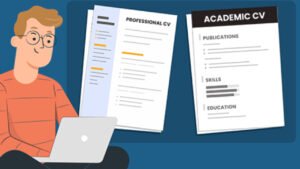An interview is a chance for an employer to see if you’re the right person for the job. It’s also a chance for you to make sure the job and company are the right fit for you.
When seeking employment, an interview with the hiring manager is often required. The job interview is a great way for companies to assess if you’re qualified for the position you’re applying for. While the way an employer conducts the interview, the questions they ask and the interview’s duration will vary by company, in general, they will have a similar structure, which allows you to prepare for yours.
There are several things to expect when it comes to the interview process, but the format will greatly depend on the company you’re interviewing with. Here is a general overview of what questions you can expect during a formal, in-person interview.
1. Tell Me About Yourself.
This question seems simple, so many people fail to prepare for it, but it’s crucial. Here’s the deal: Don’t give your complete employment (or personal) history. Instead, give a pitch—one that’s concise and compelling and that shows exactly why you’re the right fit for the job.Talk a little bit about your current role (including the scope and perhaps one big accomplishment), then give some background as to how you got there and experience you have that’s relevant. Finally, segue into why you want—and would be perfect for—this role.
2. How Did You Hear About This Position?
Another seemingly innocuous interview question, this is actually a perfect opportunity to stand out and show your passion for and connection to the company. If you discovered the company through an event or article, share that. Even if you found the listing through a random job board, share what, specifically, caught your eye about the role.
3. Why Do You Want to Work at This Company?
Beware of generic answers! If what you say can apply to a whole slew of other companies, or if your response makes you sound like every other candidate, you’re missing an opportunity to stand out. Do your research and point to something that makes the company unique that really appeals to you; talk about how you’ve watched the company grow and change since you first heard of it; focus on the organization’s opportunities for future growth and how you can contribute to it; or share what’s gotten you excited from your interactions with employees so far. Whichever route you choose, make sure to be specific. And if you can’t figure out why you’d want to work at the company you’re interviewing with by the time you’re well into the hiring process? It might be a red flag telling you that this position is not the right fit.
4. Why Should We Hire You?
This interview question seems forward (not to mention intimidating!), but if you’re asked it, you’re in luck: There’s no better setup for you to sell yourself and your skills to the hiring manager. Your job here is to craft an answer that covers three things: that you can not only do the work, but also deliver great results; that you’ll really fit in with the team and culture; and that you’d be a better hire than any of the other candidates.
5. What Are Your Greatest Strengths?
Here’s an opening to talk about something that makes you great—and a great fit for this role. When you’re answering this question, think quality, not quantity. In other words, don’t rattle off a list of adjectives. Instead, pick one or a few (depending on the question) specific qualities that are relevant to this position and illustrate them with examples. Stories are always more memorable than generalizations. And if there’s something you were hoping to mention because it makes you a great candidate, but you haven’t had a chance yet, this would be the perfect time.
6. What Do You Consider to Be Your Weaknesses?
What your interviewer is really trying to do with this question—beyond identifying any major red flags—is to gauge your self-awareness and honesty. So, “I can’t meet a deadline to save my life” is not an option—but neither is “Nothing! I’m perfect!” Strike a balance by thinking of something that you struggle with but that you’re working to improve. For example, maybe you’ve never been strong at public speaking, but you’ve recently volunteered to run meetings to help you get more comfortable when addressing a crowd.
7. Why Are You Leaving Your Current Job?
This is a toughie, but one you can be sure you’ll be asked. Definitely keep things positive—you have nothing to gain by being negative about your current employer. Instead, frame things in a way that shows that you’re eager to take on new opportunities and that the role you’re interviewing for is a better fit for you. For example, “I’d really love to be part of product development from beginning to end, and I know I’d have that opportunity here.” And if you were let go from your most recent job? Keep it simple: “Unfortunately, I was let go,” is a totally acceptable answer.
8. Why Was There a Gap in Your Employment?
Maybe you were taking care of children or aging parents, dealing with health issues, or traveling the world. Maybe it just took you a long time to land the right job. Whatever the reason, you should be prepared to discuss the gap (or gaps) on your resume. Seriously, practice saying your answer out loud. The key is to be honest, though that doesn’t mean you have to share more details than you’re comfortable with. If there are skills or qualities you honed or gained in your time away from the workforce—whether through volunteer work, running a home, or responding to a personal crisis—you can also talk about how those would help you excel in this role.
9. How Do You Deal With Pressure or Stressful Situations?
Here’s another question you may feel the urge to sidestep in an effort to prove you’re the perfect candidate who can handle anything. But it’s important not to dismiss this one (i.e. don’t say, “I just put my head down and push through it,” or, “I don’t get stressed out”). Instead, talk about your go-to strategies for dealing with stress (whether it’s meditating for 10 minutes every day or making sure you go for a run or keeping a super-detailed to-do list) and how you communicate and otherwise proactively try to mitigate pressure. If you can give a real example of a stressful situation you navigated successfully, all the better.
10. Do you have any questions for me?
This is a chance to show how engaged you are by asking questions of the interviewer. If you ask prescient, relevant questions, the interviewer can tell that you’ve done your homework and fully researched the company. It’s also a chance to find out about anything that you might need to know about the job.
What are your salary expectations?
This question allows employers to assess your professional value against their own pay expectations. Review the salary data for your role, industry, education, experience and location, and ask for a competitive salary. You can also let the hiring manager know if you’re prepared to negotiate on salary in exchange for perks like flexible working.
What are your goals for the future?
Hiring managers want to know if you’re likely to stay long-term or if this job is a stepping stone in your career journey. Even if you’re not planning to make this job your career, talk about how your goals align with their company mission.
To help make sure you’re prepared:
- read the job description and person specification carefully. Be clear on the skills and qualities the employer is looking for
- check the company website to find out more about its products or services and their plans for the future
- go over your CV or application form and think about things the employer may ask you about
- prepare some examples that show you have the right skills, personal qualities and experience. Use the STAR method
- practise your timings on presentations and keep a back-up copy
- ask someone you trust to help you practise answering questions
- think of 2 or 3 questions of your own that you can ask at the end of your interview, to show you’re enthusiastic about the job
- pick out something suitable and comfortable to wear
- check what time you need to arrive and the name of the person you need to see
- make sure that you know how to get to where the interview is being held. Work out your public transport route or where you can park. Plan to arrive 5 to 10 minutes before the interview starts
- make sure you know who to call in case you’re late for any reason.
While every company and human resources department works differently, the way they structure their interviews is generally the same.
When you arrive for your interview, head to the secretary or reception desk and let them know who you are and what position you’re interviewing for. You’ll likely be asked to sit in a waiting area until the hiring manager is ready to see you. It’s important to stay off your phone so you don’t seem disinterested in the role.
In the interview, remember to:
- be polite and use the right language and tone for a formal situation
- listen to the questions and think before you begin your answers
- ask the interviewer to repeat or explain further if you do not understand a question
- use the STAR method to answer questions about your skills and experience
- be positive about your experiences. If you’ve faced difficult situations, show what you learned from them
be honest and assertive - ask a couple of questions when you’re given the opportunity. Choose questions that make you sound keen. For example, “What opportunities are there for training with the company?” It’s best not to ask about pay or holidays at this stage
- At the end of the interview, thank the employer for their time. Tell them you’re looking forward to hearing from them.
When you leave the interview, try to reflect on some of the harder questions you were asked – this can help you to prepare for future interviews.










